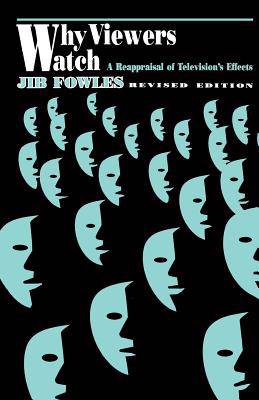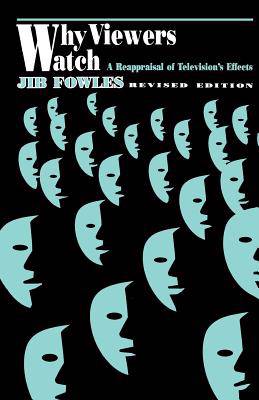
- Afhalen na 1 uur in een winkel met voorraad
- Gratis thuislevering in België vanaf € 30
- Ruim aanbod met 7 miljoen producten
- Afhalen na 1 uur in een winkel met voorraad
- Gratis thuislevering in België vanaf € 30
- Ruim aanbod met 7 miljoen producten
Zoeken
€ 177,45
+ 354 punten
Omschrijving
Television corrupts our children, induces us to spend needlessly, and stimulates hostility and violence. Or does it? Jib Fowles sees television as a "grandly therapeutic force," that television is indeed good for you. He examines why nearly every American regularly watches television and why viewing is beneficial. Updated and jargon-free, Why Viewers Watch describes the overall effect of programming on the population. What do viewers get from television? What does it do for them? Why do academics negatively judge television? Using recent research reports, overlooked past studies, and fresh survey data to substantiate this positive role, Fowles first reviews the history of television and programming. After discussing what people expect from television, he explores how different types of programs satisfy different needs. Fowles also debunks many of the myths propagated by media scholars and "television prigs." With an easy-to-read style that is both entertaining and informative, Why Viewers Watch suits both the scholar and the student, the specialist and nonspecialist alike. As such, it is the perfect companion volume for courses in communication, journalism, sociology, and psychology. "The author does present another side to the complex effects debate--a side of which we should all be aware." --Et cetera from the First Edition: "An interesting--and challenging--book about television. So good it is surprising it has not received more attention. . . . There aren′t many really good books about television, and [this] is one of the best." --Peter Farrell, The Sunday Oregonian "I would recommend this book to interested television viewers, media scholars, and professionals. Fowles′ arguments are thought-provoking and sometimes compelling. The book is very readable and easily accessible to lower-division students. For those of us who spent our childhoods glued to the screen and believe we still turned out all right, this book will help alleviate our nagging guilt when we watch television. The book should help scholars reexamine our views on the impact of television′s content and our suggested changes. Media professionals should find the book a testament to the positive aspects of their medium." --The Southern Speech Communication Journal
Specificaties
Betrokkenen
- Auteur(s):
- Uitgeverij:
Inhoud
- Aantal bladzijden:
- 284
- Taal:
- Engels
Eigenschappen
- Productcode (EAN):
- 9780803940772
- Verschijningsdatum:
- 14/01/1992
- Uitvoering:
- Paperback
- Formaat:
- Trade paperback (VS)
- Afmetingen:
- 153 mm x 214 mm
- Gewicht:
- 421 g

Alleen bij Standaard Boekhandel
+ 354 punten op je klantenkaart van Standaard Boekhandel
Beoordelingen
We publiceren alleen reviews die voldoen aan de voorwaarden voor reviews. Bekijk onze voorwaarden voor reviews.







